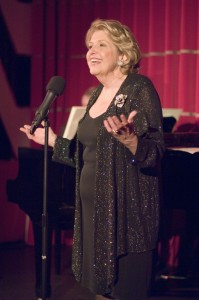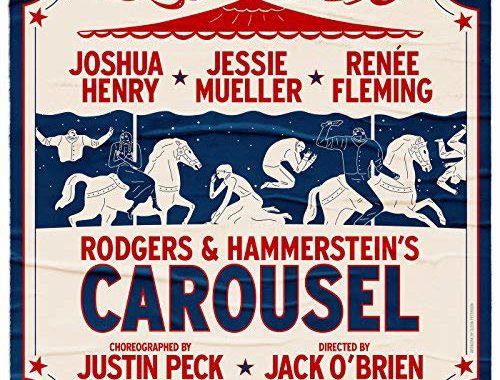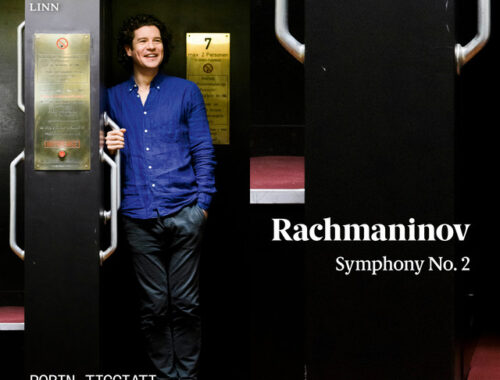Anne Reid, Crazy Coqs
 One of the great advantages of leaving your cabaret debut until you are on the cusp of becoming an octogenarian is that you and you alone alone make the rules. Better yet you owe no one an apology, least of all your audience. The embraceable Anne Reid positively bounced on for her set at the Crazy Coqs – “Fit as a Fiddle” by Al Hoffman and Al Goodhart gave us all hope for the no so very distant future and when she welcomed and thanked us for our enthusiasm she began with a confidential aside – “I can’t believe I’m doing this” – adding that she half expected a nurse to bring her to her senses with a timely reprimand for not taking her medication. Well, that’s one way of putting your audience on the back foot. Another is to recall how your neighbour inadvertently equated your singing practice to the torment of her husband’s power drill. But, of course, it worked, and when you are as loved as Anne Reid is for what she calls her “skirt and jumper” roles, when you’ve been dispatched from Coronation Street with a hair-dryer in the bath, when you’ve bedded Daniel Craig in your twilight years, it’s pretty much open season as to what you can get away with.
One of the great advantages of leaving your cabaret debut until you are on the cusp of becoming an octogenarian is that you and you alone alone make the rules. Better yet you owe no one an apology, least of all your audience. The embraceable Anne Reid positively bounced on for her set at the Crazy Coqs – “Fit as a Fiddle” by Al Hoffman and Al Goodhart gave us all hope for the no so very distant future and when she welcomed and thanked us for our enthusiasm she began with a confidential aside – “I can’t believe I’m doing this” – adding that she half expected a nurse to bring her to her senses with a timely reprimand for not taking her medication. Well, that’s one way of putting your audience on the back foot. Another is to recall how your neighbour inadvertently equated your singing practice to the torment of her husband’s power drill. But, of course, it worked, and when you are as loved as Anne Reid is for what she calls her “skirt and jumper” roles, when you’ve been dispatched from Coronation Street with a hair-dryer in the bath, when you’ve bedded Daniel Craig in your twilight years, it’s pretty much open season as to what you can get away with.
Reid exudes warmth, she’s one of us. And even as the running order got the better of her from time to time I felt like I wanted to jump up and sort it out for her (“Why didn’t you?” I can hear her say). That radiant smile is SO inviting and reassuring. As for the comic timing, well, flustered or not, that never deserts her. The story of the 200-pound German bomb that failed to explode on impact with her home revealed something of the northern stock from whence she came while her mother’s irritation that they should evacuate at three in the morning could leave no one in any doubt as to why we won the war.
Reid’s stories are, of course, priceless: her memorable seven-and-a-half day flight back to India, aged 12, with a couple of joy-riding airmen where, having never flown before, she imagined that their series of victory rolls was something that routinely happened on BOAC. Is it any wonder that Victoria Wood put her on “Dinnerladies” duty?
But the real cleverness of Reid’s set lay with the shrewd choice of songs. Pianist Stuart Hutchinson plainly played a part in that fielding some lesser known Sondheim charmers (perhaps Reid’s idol Barbara Cook offered a few pointers) alongside the likes of Hamlisch, Legrand, Arlen, and even Billy Joel. Jerry Herman’s “Ribbons Down My Back” (from Dolly) was perfect (a one-time Patricia Routledge favourite) and most touching of all was an affecting little gem from Amanda McBroom called “Errol Flynn” which threw a whole new light on the legacy of a broken home. Reid inhabited that like the consummate actress she is. Indeed, her best moments in song were those in which the weight of nostalgia bore down on her… “The Road You Didn’t Take”, “Cock-Eyed Optimist”. You don’t need to be a singer to make songs land – and perhaps Reid is wrong when she says she wishes she’d done this 30 years ago; just think of all that life experience she now has to draw upon.
You May Also Like

GRAMOPHONE Review: Carousel – 2018 Broadway Cast Recording/Rodgers & Hammerstein
10/10/2018
GRAMOPHONE Review: Rachmaninov Symphony No.2 – Deutsches Symphonie-Orchester Berlin/Ticciati
10/11/2021